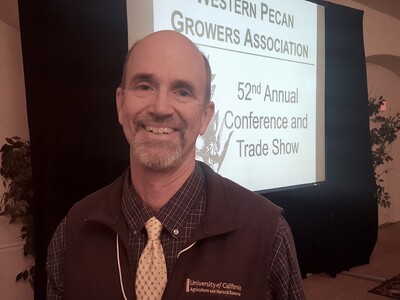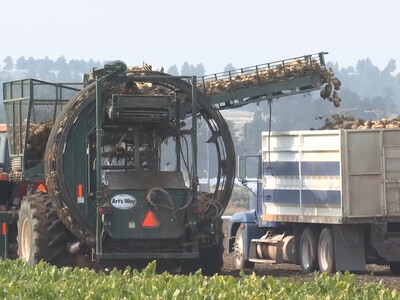Labor Dispute
Port disruptions on the West Coast due to labor contract negotiations between the International Longshore and Warehouse Union (ILWU) and Pacific Maritime Association (PMA) are hurting Idaho agriculture and Idaho’s exporters. The problems at West Coast ports are numerous including congestion, slowdowns and terminal closures. All of which are contributing to product delays, lack of available equipment, increased costs and lost sales.
The dispute is hurting Idaho agriculture directly. Any product that is exported from the West Coast, especially containerized cargo, is impacted. This includes beef, fresh potatoes, apples and pears, cheese and dairy products, hay, and processed foods including French fries. “Exports are an essential part of Idaho’s economy,” said Celia Gould, Director, Idaho State Department of Agriculture, “and this disruption is a serious problem.”
“We have seen a significant negative impact to our business with a reduction of almost 70% of our export volume costing us millions of dollars”, said Brad McDowell of Agri Beef Co. “Unfortunately this loss also means that we have had to cut back our operational hours impacting our people and their livelihoods,” he added. “Globally, our customers are questioning the reliability of American suppliers and that has opened the door to international beef competitors. We may never fully recover our export business regardless of when this is resolved. What we spent decades building can be destroyed in weeks. It’s not a good situation and will have a serious impact on all ag business.”
The Idaho potato industry has suffered from numerous lost loads. Some customers have cancelled orders because they can’t get the product delivered. Some orders have sat at the port for a week and a half only to be brought back to Idaho. The fresh product couldn’t then handle a two week trip on the water without suffering quality problems.
“The slowdowns at the ports are wreaking havoc on previously signed contracts and price negotiations with new and current clients. Container loads have been ordered and paid for,
but are not reaching their destinations on time. Shippers aren’t quoting new shipments because the cost of transportation is increasing on a daily basis and there is no assurance they can get a truck within a week or then find container space on a ship within a calculable timeframe. The port issues could cause us to lose customers, in particular in Asia, to competition from Europe or Australia,” said Frank W. Muir, President/CEO, Idaho Potato Commission.
Symms Fruit Ranch estimates their export sales are down 20% so far this year due to the port disruption. Of the product that is being exported, nearly 80% has suffered delays due to the work stoppage. “Many full containers spent a week or two on the docks at a port waiting for vessels to dock. Because of the equipment shortage many loads had to be placed in cold storage in Seattle, Long Beach, San Francisco and others. Our expenses ranged from $200 to over $1000 per load depending on the amount of time in storage waiting to be loaded in a container and then placed on a vessel,” explained Jim Mertz, Symms Fruit Ranch. “Arrival timing is very important. Central American countries want their fruit delivered no later than mid-December so the apples will be marketed and sold for Christmas. Major price adjustments will be made as vessels arrive weeks late with product quality not at an apex because of an extra week or two in transit. Losses will be substantial.”
The West Coast port issues are impacting Idaho hay exports as well. “Our global partners can source their products anywhere they wish. If, because of the actions of the unions, they decide the U.S. is not a consistently reliable source they will simply manage that risk by going elsewhere,” said Robert Bishop, Larsen Hay Terminal. “We hope that does not happen and are working diligently to assure it doesn’t happen; but the unions need to realize that they do not operate in a vacuum and once their actions lose a market that market will not return. A recent Journal of Commerce survey showed that 60% of U.S. shippers were looking to divert shipments away from Western U.S. ports.”
Standlee Hay of Eden is facing huge losses as well. “We are losing $700,000 a week in sales,” said Dusty Standlee, President. “The bigger problem is that we have contracts in place that are at risk of being voided by our customer because we cannot deliver. They will buy from Canada, Australia, Sudan, or Spain.”
No part of the state is immune from the disruption. “The ILWU West Coast slowdown is severely impacting Idaho’s agricultural and timber exporters. At this point, pea and lentil shippers are finding it extremely difficult to get containers out of Pacific Northwest ports.” David Doeringsfeld, Port of Lewiston General Manager.














